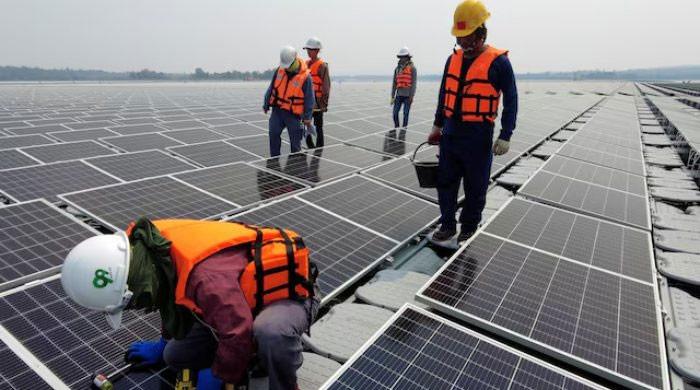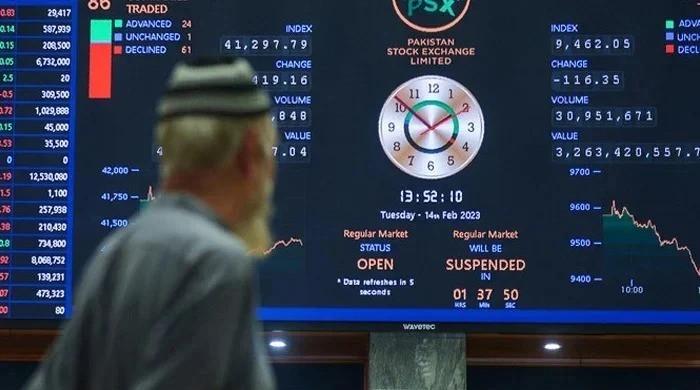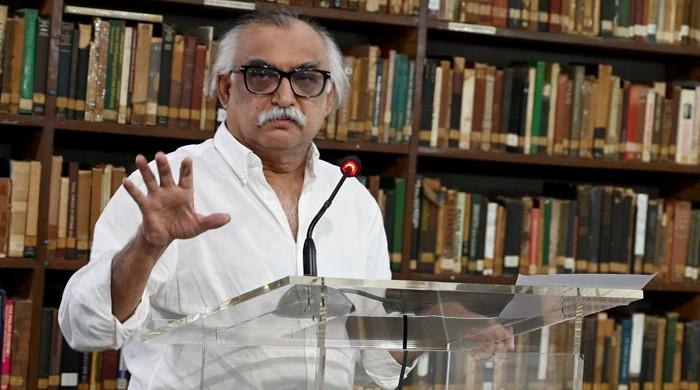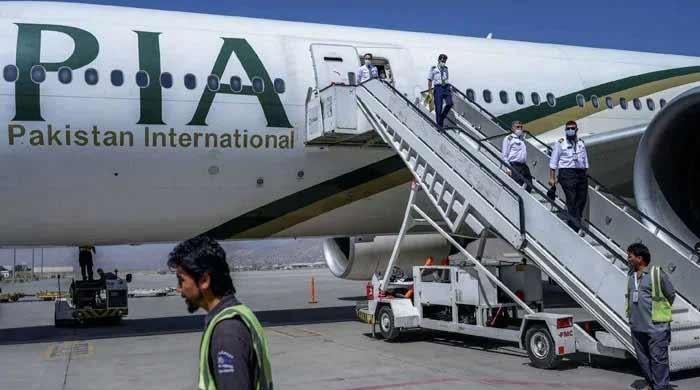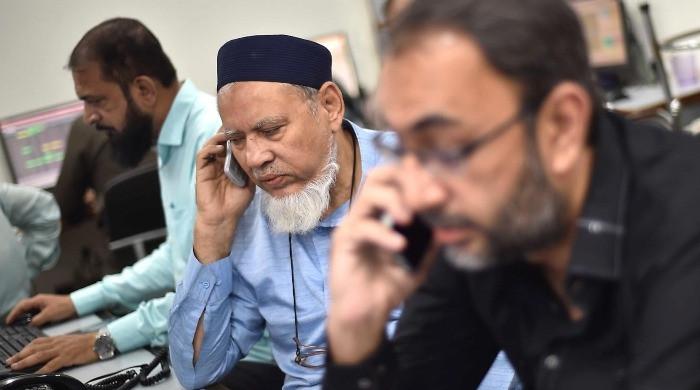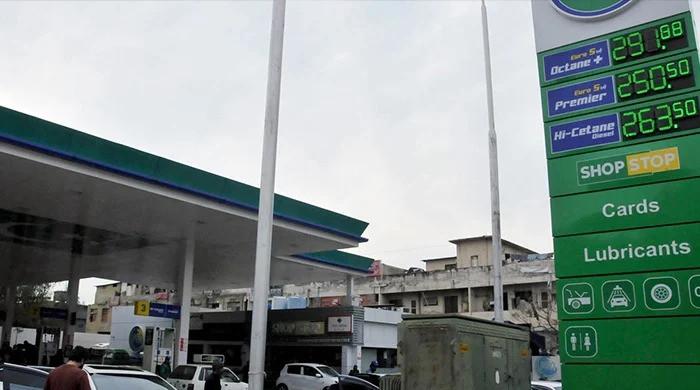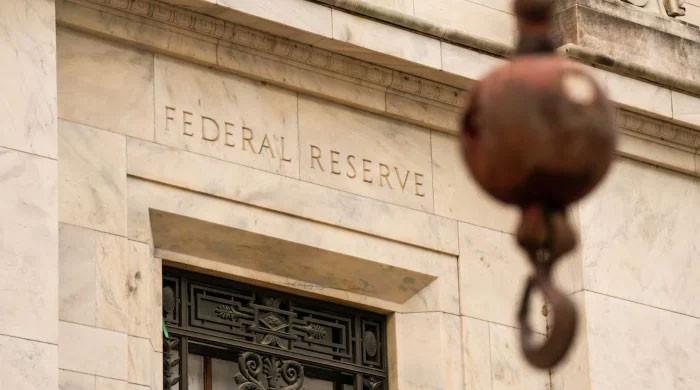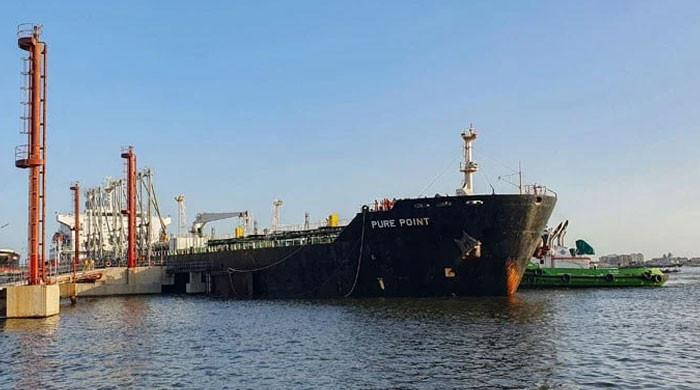FBR turns down $50m tax exemption for TAPI gas project due to IMF conditions
To include, TAPI in FIPPA Act 2022, Petroleum Division sent draft summary to ECC in October last year
January 23, 2024

- TAPI remains delayed for 7 years due to failure in financial closures.
- Petroleum Division sent relevant draft summary to ECC in Oct 2023.
- ECC told Petroleum Division to discuss matter with FBR, Finance Division.
ISLAMABAD: The Federal Board of Revenue (FBR) is evading the inclusion of the Turkmenistan–Afghanistan–Pakistan–India (TAPI) gas pipeline project in the Foreign Investment Promotion and Protection Act (FIPPA) 2022, as it may cost a tax exemption of $40 to $50 million, which is impossible because Pakistan is currently under the International Monetary Fund's watch, The News reported on Tuesday citing senior officials at the Energy Ministry.
According to the officials, the tax collecting agency has "already refused to give tax exemptions to local refineries on the amount of the incentives from the ESCROW account to be given by the government to refineries under the refinery policy for upgradation."
They added that the draft summary to the Economic Coordination Committee (ECC) was circulated by the Petroleum Division on October 3, 2023, for inclusion of the TAPI gas line project in the FIPPA.
The ECC, in its meeting on December 28 last year, deliberated on the said subject and directed the Petroleum Division officials to discuss the matter in a close loop with FBR functionaries and the Finance Division.
It may not be out of place to mention that FIPPA was approved by the Parliament to provide legal cover for the Reko Diq project, a copper and gold mine in Balochistan province, which is being developed by a consortium of foreign companies.
Turkmenistan, earlier, requested the authorities in Pakistan, seeking inclusion of the TAPI gas line project under the cover of the FIPPA, as authorities believe that Pakistan has already assured the protection of Turkmen investment with a sovereign guarantee under the Host Government Agreement (HGA).
However, the FIPPA would extend nothing but the added advantage to Turkmen Gas Company that it would have the legislative cover in terms of protection that has been guaranteed to protect foreign investment in connection with the Reko Diq project.
The officials said that the FIPPA may also increase the credibility of Turkmen gas companies before banks for bankable feasibility and loans as well.
However, the experts are of the view that Pakistan should also ensure that FIPPA-like treatment to the TAPI project is being given by other gas buyer countries — Afghanistan and India — and if not, then Pakistan should not extend the FIPPA status to the project.
The project has been delayed for about seven years, mainly because of failure in financial closures and, in the latest scenario since the Taliban took power in Afghanistan, the Asian Development Bank (ADB) halted due diligence and processing activities about the TAPI project until the Taliban regime is legitimised by the United Nations and big economies of the world. So the project’s implementation is not in sight and the Pakistan government should not extend the FIPPA status to the TAPI gas line project, the officials said.
“Pakistan has already assured the protection of Turkmen investment with a sovereign guarantee under the Host Government Agreement (HGA), which was signed in 2016 along with the Gas Pipeline Framework Agreement (GPFA),” the officials said.
The gas pipeline project would be built and commissioned at a 30%:70% equity and loan business plan. Out of 30% equity, Turkmenistan has an 85% share, and Afghanistan, Pakistan, and India each have a 5% share. Pakistan’s equity stands at $200 million.
The remaining 70% of the funding would be based on loans that the TAPI consortium will arrange from the international financial institutions.
Turkmenistan and Pakistan, on June 9, 2023, signed a Joint Implementation Plan (JIP) to accelerate work on the TAPI Gas Pipeline project in Islamabad. Pakistan has suggested to Turkmenistan to lay down some portion of the gas line up to Herat in Afghanistan to ensure the ownership from the Taliban, which will also help move the project forward.
The TAPI gas pipeline project aims to bring natural gas from the Galkynysh gas field in Turkmenistan to Pakistan through Afghanistan via a 56-inch diameter pipeline. The Galkynysh gas field is located in the eastern region of Turkmenistan.
The proposed route of the supply source is Herat, Kandahar, Chaman, Zhob, DG Khan, Multan, and Fazilika, with a pipeline length of 1,849 kilometers. It will transport up to 33 billion cubic meters (bcm) (average 3.2 BCFD) of natural gas per year over a 30-year period, where Pakistan’s off-take will be 1.35 BCFD.




